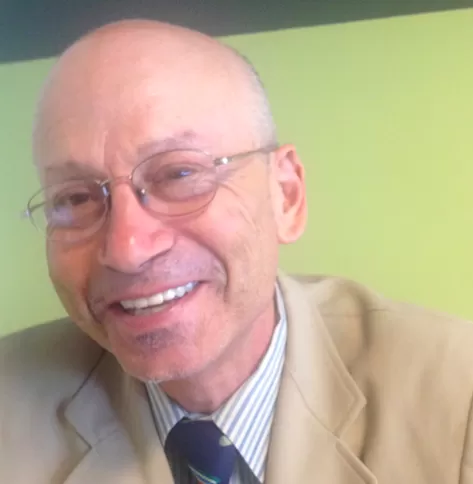Irvin Dawid discovered Planetizen when a classmate in an urban planning lab at San Jose State University shared it with him in 2003. When he left San Jose State that year, he took with him an interest in Planetizen, if not the master's degree in urban & regional planning.
As a long-time environmental activist, he formed the Sustainable Land Use committee for his local Sierra Club chapter and served six years on the Bay Area Air Quality Management District’s Advisory Council from 2002-2008. He maintains his interest in air quality by representing Sierra Club California on the Clean Air Dialogue, a working group of the Calif. Environmental Dialog representing business, regulatory and public health/environmental interests.
Major interests include transportation funding, e.g., gas taxes, vehicle miles traveled (VMT) fees, road tolls and energy subsidies that lead to unlevel playing fields for more sustainable choices.
He hails from Queens (Bayside) and Long Island (Great Neck); received an AAS in Fisheries & Wildlife Technology from SUNY Cobleskill and a B.S. from what is now Excelsior College.
After residing for three years on California’s North Coast, he’s lived on the San Francisco Peninsula since 1983, including 24 years in Palo Alto. Home is now near downtown Burlingame, a short bike-ride to the Caltrain station.
He’s been car-free since driving his 1972 Dodge Tradesman maxi-van, his means to exit Long Island in 1979, to the junkyard in 1988.
Major forms of transportation: A 1991 'citybike' and monthly Caltrain pass, zone 2-2. "It's no LIRR, but it may be the most bike friendly train in America."
Irvin can be reached at [email protected]
U.S. Demand For Gasoline Has Peaked
As improbable as it sounds, the U.S. hit 'peak gas demand' in 2006 at 9 million barrels per day. By 2030, experts predict it will be 20% lower. The decline is attributed to driving less, more efficient vehicles, and the addition of ethanol to gas.
New Census Figures Put U.S. Population at 308,745,538
NPR reports how it will affect the electoral college, noting those that will gain House seats (south and west; mostly red) and the losers (north and mid-west; LA the exception; mostly blue). The Times reports on the importance of minorities.
Opposing Seattle's Big Dig Project
Grist's Dave Roberts chats with Cary Moon, one of the key opponents to Seattle's version of the Big Dig, a tunnel to replace the Alaskan Way Viaduct. Moon, urbanists, and environmentalists are supporting a multi-modal, surface boulevard alternative.
Physicist Tackles Urban Theory
Physicist Geoffrey West of the Santa Fe Institute applied his talents to unraveling urban issues like population growth in a similar vein that he did earlier with biology. He found answers that explain how all cities work if enough data is supplied.
Less Celebration In Disney Town As Foreclosures Rise
To be sure, Celebration still has amongst the highest real estate values, about twice Florida's median value. Yet the foreclosure rate of one of every 20 residents is twice that of the state's.

























